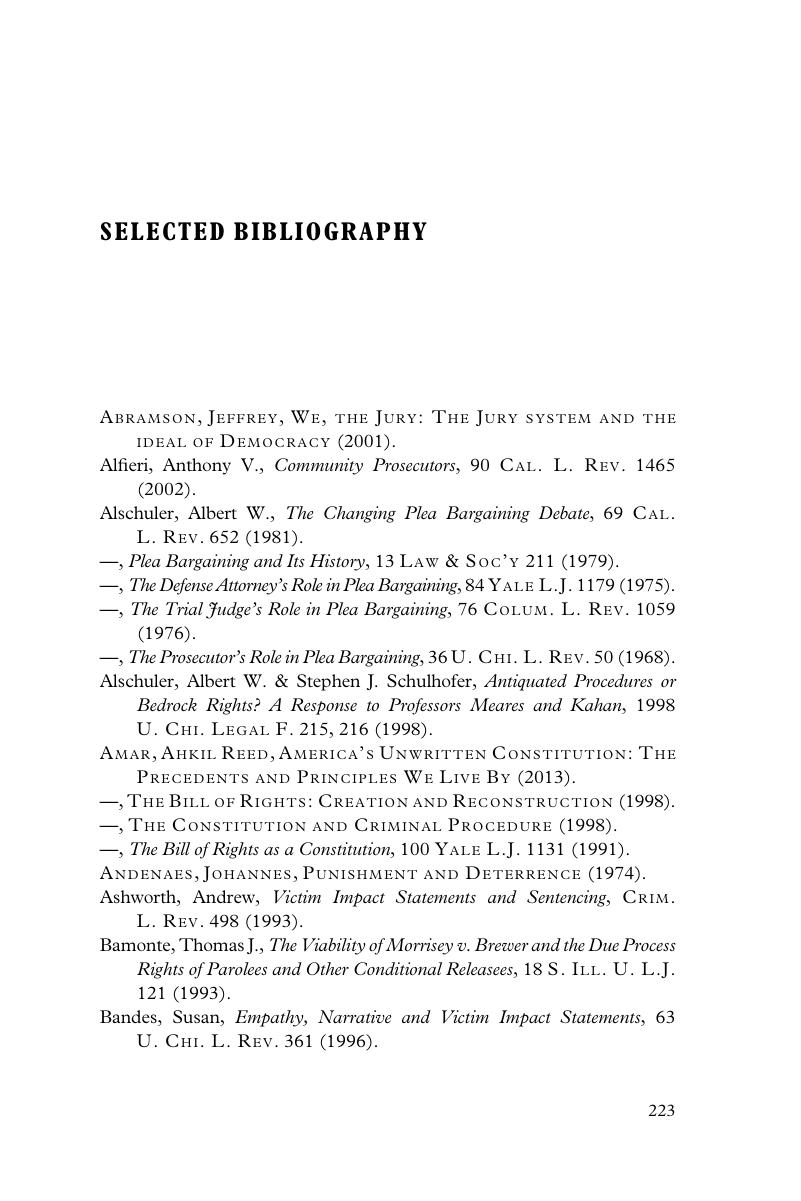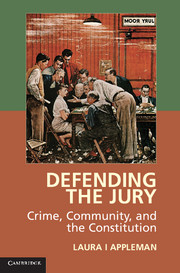Book contents
- Frontmatter
- Contents
- Acknowledgments
- 1 Introduction
- Part I History in the Crucible: Rediscovering the Original Community Right in Criminal Justice
- Part II Old Becomes New: Sixth Amendment Jury Rights and Twenty-First-Century Criminal Procedure
- Part III Theory into Practice: Origins and Community in Modern Criminal Procedure
- Selected Bibliography
- Index
- References
Selected Bibliography
Published online by Cambridge University Press: 05 April 2015
- Frontmatter
- Contents
- Acknowledgments
- 1 Introduction
- Part I History in the Crucible: Rediscovering the Original Community Right in Criminal Justice
- Part II Old Becomes New: Sixth Amendment Jury Rights and Twenty-First-Century Criminal Procedure
- Part III Theory into Practice: Origins and Community in Modern Criminal Procedure
- Selected Bibliography
- Index
- References
Summary

- Type
- Chapter
- Information
- Defending the JuryCrime, Community, and the Constitution, pp. 223 - 232Publisher: Cambridge University PressPrint publication year: 2015



